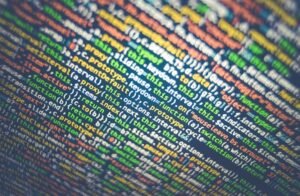What Are AI Tools
Artificial Intelligence (AI) tools are computer programs or systems that use algorithms and data to mimic intelligent human behavior and perform tasks typically requiring human intelligence. These tools are designed to analyze vast amounts of data, learn from patterns, and make informed decisions or predictions.
Key Takeaways:
- AI tools mimic human intelligence through algorithms and data analysis.
- They can perform tasks traditionally requiring human intelligence.
- AI tools learn from data patterns and make informed decisions or predictions.
AI tools encompass various technologies that enable machines to process information, recognize patterns, and perform specific tasks. Machine Learning (ML) is a subset of AI that focuses on the development of algorithms that allow systems to learn and improve from experience without explicit programming. ML algorithms analyze data, identify patterns, and make predictions or decisions based on the patterns identified. Natural Language Processing (NLP) is another prominent AI tool that enables computers to understand and interpret human language, both written and spoken.
**AI tools have numerous applications** across diverse industries. In healthcare, AI tools can help analyze medical images to detect anomalies or assist in diagnosis. In finance, these tools can predict market trends, assess credit risk, and automate transactions. Moreover, AI tools are utilized in logistics and supply chain management for optimizing routes and managing inventory. They also have applications in customer support, chatbots, fraud detection, and personalized recommendations in e-commerce.
Types of AI Tools
AI tools can be broadly categorized into three types:
- Machine Learning Tools: These tools use ML algorithms to analyze data, recognize patterns, and make predictions or decisions based on the patterns identified.
- Natural Language Processing Tools: These tools enable computers to understand and interpret human language, both written and spoken.
- Computer Vision Tools: These tools focus on processing and analyzing visual data, such as images and videos, to extract meaningful information.
Popular AI Tools
There are several popular AI tools available today that businesses and individuals can leverage:
- TensorFlow: An open-source ML library developed by Google that allows developers to build and train ML models efficiently.
- PyTorch: Another ML library popular for its dynamic and intuitive programming interface.
- IBM Watson: A powerful AI platform that offers numerous tools for NLP, ML, and computer vision applications.
AI Tools in Numbers:
| Industry | Estimated AI Spending (2020) |
|---|---|
| Healthcare | $8.2 billion |
| Finance | $12.4 billion |
| Retail | $5.9 billion |
*AI spending estimates for the year 2020 revealed substantial investments in healthcare, finance, and retail sectors.
In conclusion, AI tools have revolutionized various industries by enabling machines to mimic human intelligence and perform complex tasks. They can analyze data, recognize patterns, make predictions, and enhance decision-making processes. The widespread adoption of AI tools highlights their tremendous potential and the significant investments being made in this field.
| AI Tool | Key Features |
|---|---|
| TensorFlow | Efficiently build and train ML models. |
| PyTorch | Dynamic and intuitive programming interface. |
| IBM Watson | Powerful AI platform for NLP, ML, and computer vision. |
Advancements in AI Tools
AI tools are constantly evolving, and innovations in the field continue to shape the future. Some advancements include:
- Development of Explainable AI to enhance transparency in decision-making processes.
- Advancements in Generative Adversarial Networks (GANs) for realistic image and video generation.
- Improvements in Transfer Learning to enable models to leverage knowledge from one domain to another.

Common Misconceptions
Misconception 1: AI Tools Will Take Over Jobs
One common misconception about AI tools is that they will ultimately replace human jobs, leading to unemployment. However, this is not entirely true as AI tools are designed to augment human capabilities and make tasks more efficient, not eliminate jobs altogether.
- AI tools can automate repetitive tasks, allowing employees to focus on more strategic and creative aspects of their work.
- AI tools can enhance decision-making processes by providing real-time insights and analysis, improving efficiency and accuracy.
- AI tools can help create new job opportunities by driving innovation and creating roles related to developing and managing AI systems.
Misconception 2: AI Tools Are Highly Expensive
Another misconception is that AI tools are only accessible to large enterprises with substantial budgets. While there may be expensive AI solutions available, there are also affordable options that cater to the needs of small and medium-sized businesses.
- There are open-source AI tools available that are free to use and can be customized according to specific requirements.
- Cloud-based AI platforms offer pay-as-you-go pricing models, making it more cost-effective for businesses to adopt AI technology.
- AI tools can help businesses save costs in the long run by automating tasks and improving operational efficiency.
Misconception 3: AI Tools Are Infallible and Perfect
Many people assume that AI tools are infallible and will always provide accurate results. However, like any technology, AI tools have limitations and can make mistakes.
- AI tools can sometimes make biased decisions if the data used to train them is biased or incomplete.
- AI tools may struggle to understand context, sarcasm, or nuances in human communication, leading to misinterpretation of information.
- Ongoing human involvement is necessary to ensure the accuracy and ethical implications of AI tools are monitored and improved over time.
Misconception 4: AI Tools Can Completely Replicate Human Intelligence
While AI tools have made significant advancements in simulating human intelligence, they are still far from replicating the complexity of human thinking and emotional intelligence.
- AI tools lack the ability to understand human emotions, empathy, and social dynamics, which are critical in certain professions like counseling or negotiations.
- Human intuition, creativity, and adaptability cannot be replicated entirely by AI tools.
- AI tools require human oversight and intervention to ensure the results align with human values and ethics.
Misconception 5: AI Tools Are Difficult to Implement and Use
It is often believed that implementing and operating AI tools require specialized technical knowledge and skills, which can be a barrier for many businesses. However, the availability of user-friendly AI tools and platforms has made it easier for non-technical users to leverage AI technology.
- Many AI tools now offer intuitive user interfaces and require minimal coding knowledge.
- Training resources, tutorials, and support communities are available to guide users through the implementation and usage of AI tools.
- Businesses can also partner with AI service providers who offer implementation support and training to make the process smoother.

The Rise of AI Tools
Artificial Intelligence (AI) tools have revolutionized various industries, providing innovative solutions for analysis, automation, and decision-making. These AI-powered technologies have significantly impacted healthcare, finance, marketing, and more. This article explores some of the fascinating AI tools that are reshaping the way we work, learn, and live.
AI Tools in Healthcare
A vast array of AI tools has been developed to enhance healthcare services, improving diagnosis, treatment, and patient care. Below are some striking examples.
AI Tools in Finance
The finance industry has embraced AI tools to streamline processes, minimize risks, and enhance customer experience. The following table illustrates a few notable AI tools used in finance.
AI Tools in Marketing
AI tools have revolutionized marketing practices, empowering businesses to gain valuable insights, automate tasks, and optimize customer engagement. The table below showcases some remarkable AI tools leveraged by marketers.
AI Tools in Customer Service
The advent of AI tools has greatly transformed customer service strategies, enabling businesses to provide personalized and efficient support. The following table highlights a selection of AI tools revolutionizing customer service.
AI Tools in Education
Education has witnessed a remarkable shift with the integration of AI tools, offering personalized learning experiences and assisting teachers in various tasks. The table demonstrates some fascinating AI tools in education.
AI Tools in Manufacturing
AI tools have revolutionized the manufacturing industry by optimizing production processes, improving quality control, and enhancing efficiency. Below are some innovative AI tools reshaping manufacturing.
AI Tools in Transportation
Transportation industry has leveraged AI tools to enhance safety, streamline logistics, and improve overall efficiency. The following table showcases some intriguing AI tools transforming transportation.
AI Tools in Agriculture
Agricultural practices have greatly benefited from AI tools, enabling precision farming, crop monitoring, and effective resource management. The table illustrates a few remarkable AI tools in agriculture.
AI Tools in Cybersecurity
With the increasing sophistication of cyber threats, AI tools have become essential for safeguarding sensitive data and detecting anomalies. The table below presents notable AI tools deployed in cybersecurity.
AI Tools in Natural Language Processing
Natural Language Processing (NLP) powered by AI has revolutionized text analysis, language translation, and virtual assistants. The following table portrays some intriguing AI tools in NLP.
In this rapidly evolving technological landscape, AI tools are playing a pivotal role in reshaping industries across the board. From healthcare to finance, marketing to education, AI is providing innovative solutions and transforming the way we live and work.
Frequently Asked Questions
What Are AI Tools?
AI tools, also known as artificial intelligence tools, are software applications or systems that employ various algorithms and machine learning techniques to perform tasks that typically require human intelligence. These tools utilize vast amounts of data to make predictions, automate processes, recognize patterns, and solve complex problems without explicit programming.
How Do AI Tools Work?
AI tools work by using machine learning algorithms to analyze and interpret input data. These algorithms can detect patterns, recognize images, process natural language, and make predictions based on previous data. Gradually, AI tools learn from their experiences and improve their accuracy over time, adapting to new situations and optimizing their performance with each iteration.
What Can AI Tools Be Used For?
AI tools have a wide range of applications across various industries. They can be used for natural language processing, image recognition, sentiment analysis, data analysis, fraud detection, recommendation systems, virtual assistants, autonomous vehicles, and much more. The potential of AI tools is constantly expanding as new technologies and use cases emerge.
What Benefits Do AI Tools Offer?
AI tools offer several benefits, including increased efficiency, enhanced accuracy, improved decision-making, reduced human error, automation of mundane tasks, cost savings, and scalability. These tools can analyze vast amounts of data much faster than humans and provide valuable insights, enabling businesses to make data-driven decisions and unlock new opportunities.
Are AI Tools a Threat to Jobs?
While AI tools and automation may replace certain job tasks, they also create new job opportunities and transform the workforce. AI tools excel at repetitive and data-intensive tasks, freeing up human workers to focus on more creative, complex, and value-driven activities. It is crucial for individuals and organizations to adapt and upskill to thrive in the AI-powered future.
How Reliable Are AI Tools?
The reliability of AI tools depends on the quality of the data they are trained on, the accuracy of the algorithms, and the expertise of those developing and deploying the tools. While AI tools can achieve impressive levels of accuracy, they are not immune to biases, erroneous data, or limitations in their training. Regular monitoring, validation, and human oversight are essential to ensure the reliability of AI systems.
Can AI Tools Learn on Their Own?
AI tools are designed to learn autonomously through the process of machine learning. They can analyze large datasets and adjust their algorithms to improve performance without explicit programming. However, AI tools do not possess consciousness or independent thought. They rely on the input and guidance provided by human programmers and experts.
Are AI Tools Expensive?
The cost of AI tools can vary depending on factors such as the complexity of the task, the amount of data required, the expertise needed to develop and maintain the tools, and the specific industry. While some AI tools may have a high upfront cost, they can often deliver significant long-term benefits and cost savings, making them a worthwhile investment for many businesses.
How Do I Choose the Right AI Tools for My Business?
Choosing the right AI tools for your business involves assessing your specific needs, evaluating different options, and considering factors such as compatibility, scalability, ease of use, ongoing support, and the track record of the tool provider. It is also helpful to consult with experts and conduct thorough testing and evaluation before making a decision.
What Ethical Concerns Are Associated with AI Tools?
AI tools raise ethical concerns related to privacy, security, bias, accountability, and transparency. It is important to ensure that AI tools are developed and used responsibly, with consideration given to potential biases in the data, the impact on individuals, the transparency of decision-making processes, and the protection of sensitive information. Ethical guidelines and regulations are continuously evolving to address these concerns.





